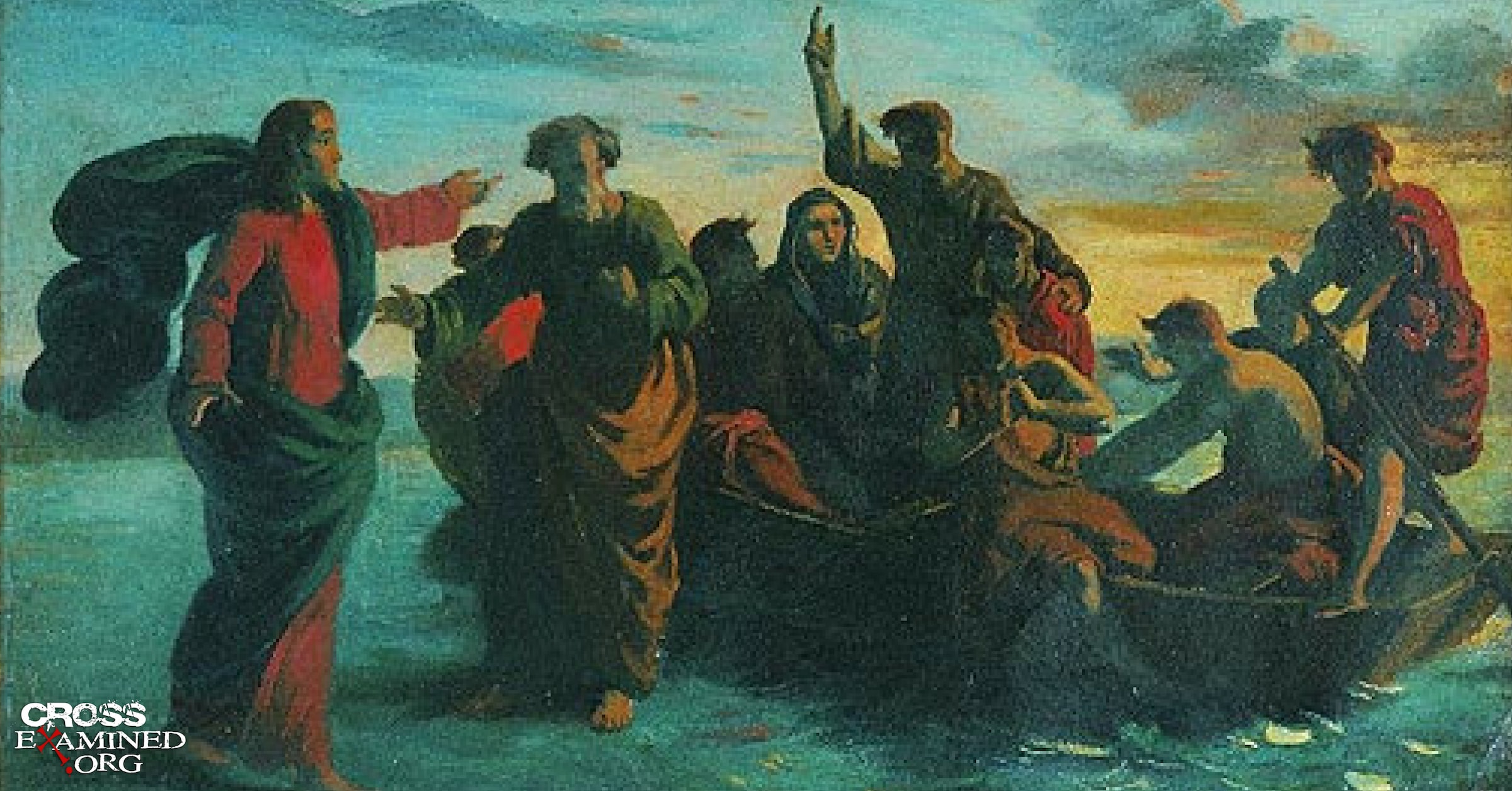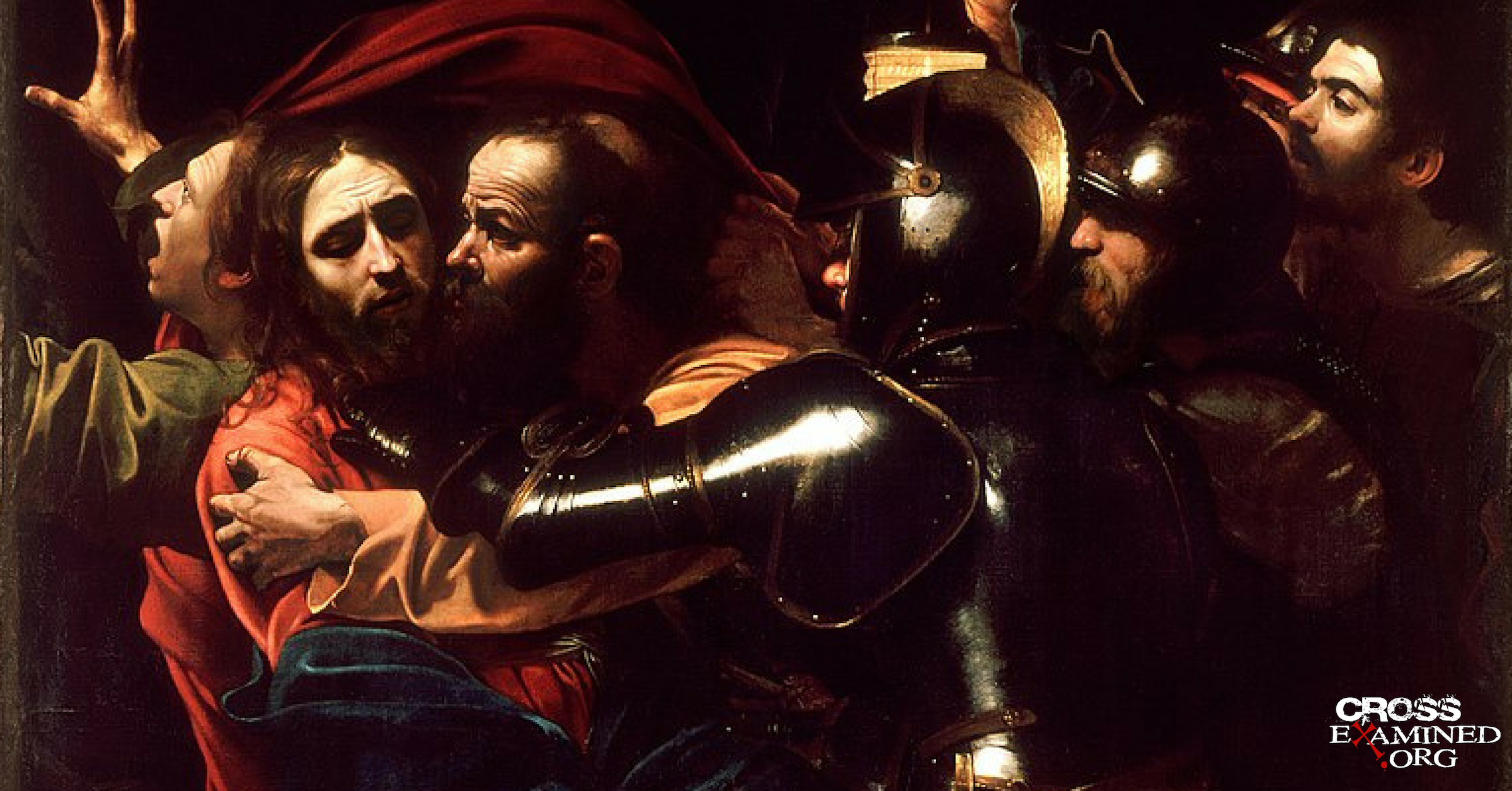Skeptics of all stripes vehemently deny the deity of Christ. Besides their a priori commitment to philosophical naturalism, a major argument they put forth is that the earliest Christians didn’t believe Jesus was divine. Rather, this belief in his deity was a legendary development, as evidenced by the four Gospels.
It’s the skeptics’ contention that the earliest Gospels (Matthew, Mark, and Luke) don’t teach a divine Jesus at all. Instead, they portray a very human Jesus. It’s not until the Gospel of John, written some sixty years after Jesus’ death, that we find a clear reference to Jesus’ divinity.
The argument goes; these Gospels reflect what the earliest communities believed about Jesus. Thus, the earlier Gospels, which don’t portray the deity of Christ, suggest that the earliest communities didn’t believe in the deity of Christ. Once we get to John, however, legends of Jesus’ divine nature have had time to spread throughout the Christian community, hence the high Christology in John.
Bart Erhman, Of Course, Agrees
Bart Ehrman sums up this view in this article:
The problem is that the only Gospel of the New Testament, where Jesus makes divine claims about himself is the Gospel of John. In the three earlier Gospels, you do not find Jesus saying things like “I and the Father are One,” or “Before Abraham was, I am,” or “If you have seen me, you have seen the Father.” These sayings are found only in the Fourth Gospel, as are all the other “I am” sayings, in which Jesus identifies himself as the one who has come from heaven to earth for the salvation of all who believe in him.
He goes on to say:
The most common way that scholars have explained this almost inexplicable omission in the Synoptic Gospels is simply that their authors did not think of Jesus as a divine being who was equal with God and pre-existed his birth, who became incarnate as the God-Man…
And the ultimate payoff is that this view of the Fourth Gospel is not the view of the historical Jesus himself. It is a later view put on his lips by the author of John or his sources.
Is Ehrman right? Was the deity of Christ a legendary development as he suggests? I don’t think so for at least two reasons.
Paul Writes Earlier Than the Gospels
First, hardly anyone disputes the fact that Paul wrote his letters before the Synoptic Gospels. And interestingly enough, Paul has an incredibly high Christology. Consider these two texts:
Romans 9:5
To them (the Jews) belong the patriarchs, and from their race, according to the flesh, is the Christ, who is God over all, blessed forever. Amen.
Writing sometime in the mid-fifties, here’s a clear reference to the deity of Christ. The legendary hypothesis doesn’t seem to work here. Nor does it with the next text.
Philippians 2:5-11
Have this mind among yourselves, which is yours in Christ Jesus, who, though he was in the form of God, did not count equality with God a thing to be grasped, but emptied himself, by taking the form of a servant, being born in the likeness of men. And being found in human form, he humbled himself by becoming obedient to the point of death, even death on a cross. Therefore God has highly exalted him and bestowed on him the name that is above every name, so that at the name of Jesus every knee should bow, in heaven and on earth and under the earth, and every tongue confess that Jesus Christ is Lord, to the glory of God the Father.
There’s little doubt this text proclaims Jesus as the pre-existent God of the universe. Paul gives us at least two reasons for reaching this conclusion.
First, he states that Jesus was “in the form of God.” The word for “form” in the Greek is morphe, which denotes the exact substance or nature of something.
Second, Paul suggests that Jesus was equal with God when he wrote that Jesus “did not count equality with God something to be grasped.”
What is especially interesting is that even though Paul penned these words, scholars agree that this portion of Philippians was an early Christian hymn dating much earlier than Paul’s letter itself.
In other words, the pre-Pauline Christian community sang these words in their corporate gatherings and collectively worshipped Jesus as God.
Larry Hurtado highlights this truth:
The singing/chanting of such odes is one of several phenomena that demonstrate the remarkable and innovative nature of early Christian worship, in which Jesus was programmatically included in the “devotional pattern” of early Christian circles along with God, and in ways otherwise reserved for God.1
While Ehrman and other skeptics try to persuade the masses that nobody believed in the deity of Christ until the end of the first century, Paul’s writings seem to indicate otherwise.
The Synoptic Gospels Highlight the Deity Of Christ Too
The second reason we should reject the legendary hypothesis is that the Synoptics, though not as explicit as John, still portray a divine Jesus. Let me give you a few examples:
Matthew 1:23
Behold a virgin shall conceive and bear a son. And they shall call his name Immanuel, which means God with us.
From the very beginning, Matthew seems to indicate that this baby Jesus would be pretty special. Divine actually. His very name would mean “God with us” — a clear expression of the incarnation.
Mark 2:5-7
After the men had lowered the paralytic man down through the roof, Mark reports:
And when Jesus saw their faith, he said to the paralytic, “Son, your sins are forgiven.” Now some of the scribes were sitting there, questioning in their hearts, “Why does this man speak like that? He is blaspheming! Who can forgive sins but God alone?”
The scribes ask a crucial question. Who can forgive sins but God alone? Of course, the answer is no one. Yet, we have Jesus pronouncing forgiveness upon this paralytic man, and backing up his pronouncement with a healing miracle.
Luke 1:16-17
As the forerunner of Jesus, Luke speaks of John the Baptist:
And he will turn many of the children of Israel to the Lord their God, and he will go before him in the spirit and power of Elijah, to turn the hearts of the fathers to the children, and the disobedient to the wisdom of the just, to make ready for the Lord a people prepared.
John’s prophetic role was to prepare the people of Israel for the coming Lord. And we know, based on the rest of the text, that coming Lord was Jesus himself.
Matthew 28:18-19
Jesus proclaims in the famous Great Commission:
All authority in heaven and on earth has been given to me. Go, therefore, and make disciples of all nations, baptizing them in the name of the Father, and of the Son, and of the Holy Spirit.
Here at the end of Matthew’s Gospel, Jesus lumps himself in with the Trinity — God the Father, God the Son, and God the Holy Spirit. Notice he uses the singular for “name” not plural “names.” In other words, Jesus understood himself as one with the Father and Spirit.
Mark 14:62
As Jesus stood on trial, the Jewish leaders asked if he was the Son of God. He unashamedly affirmed:
“I am. And you will see the Son of Man sitting at the right hand of the Mighty One coming on the clouds of heaven”
It’s a common misconception to think that Jesus’ favorite title for himself — Son of Man — refers to his humanness. The exact opposite, however, is the case.
Jesus’ self-claim is actually a reference to a prophesy about a divine figure found in Daniel 7:13-14. That text reads:
In my vision at night I looked, and there before me was one like a son of man, coming with the clouds of heaven. He approached the Ancient of Days and was led into his presence. He was given authority, glory and sovereign power; all nations and peoples of every language worshiped him. His dominion is an everlasting dominion that will not pass away, and his kingdom is one that will never be destroyed.
It’s not hard to see the parallels between Jesus’ statement in Mark 14 and the prophesy in Daniel 7. Jesus claimed to be this apocalyptic figure who would come down from the clouds of heaven to judge the earth. He had all authority, glory, and power. All the nations would worship him, and his dominion would last forever. How could anyone think these qualities belonged to anyone other than God?
I could give several other examples, but this should suffice for now.
A Final Verdict
Skeptics have gotten a lot of mileage out of the claim that the deity of Christ was a legendary development. Yet, the data seems to suggest otherwise.
Despite not being as explicit as John, the synoptic Gospels still present a divine Jesus. They present him as the second person of the Trinity, the apocalyptic Son of Man from Daniel 7, and the one who has the authority to forgive sins.
Additionally, Paul — who wrote before any of the Gospels — presents an even higher Christology. Not only does he say things like Christ is God (Rom. 9:5), he quotes from pre-Pauline hymns that exalt the divinity of Jesus, demonstrating that the early Church believed in the deity of Christ from the very beginning.
It’s time we dispel the myth that the early Christians didn’t believe in the deity of Christ. As Richard Bauckham succinctly puts it, “The earliest Christology was already the highest Christology.”2 And who could argue based on the evidence?
Recommended resources related to the topic:
Jesus, You and the Essentials of Christianity – Episode 14 Video DOWNLOAD by Frank Turek (DVD)
How Can Jesus Be the Only Way? (mp4 Download) by Frank Turek
Cold Case Resurrection Set by J. Warner Wallace (books)
World Religions: What Makes Jesus Unique? mp3 by Ron Carlson
The Bodily Nature of Jesus’ Resurrection CD by Gary Habermas
Historical Evidences for the Resurrection (Mp3) by Gary Habermas
The Jesus of the Old Testament in the Gospel of John mp3 by Thomas Howe
Ryan Leasure Holds a Master of Arts from Furman University and a Masters of Divinity from the Southern Baptist Theological Seminary. He currently serves as a pastor at Grace Bible Church in Moore, SC.
Original Blog Source: http://bit.ly/2E6IxAu




